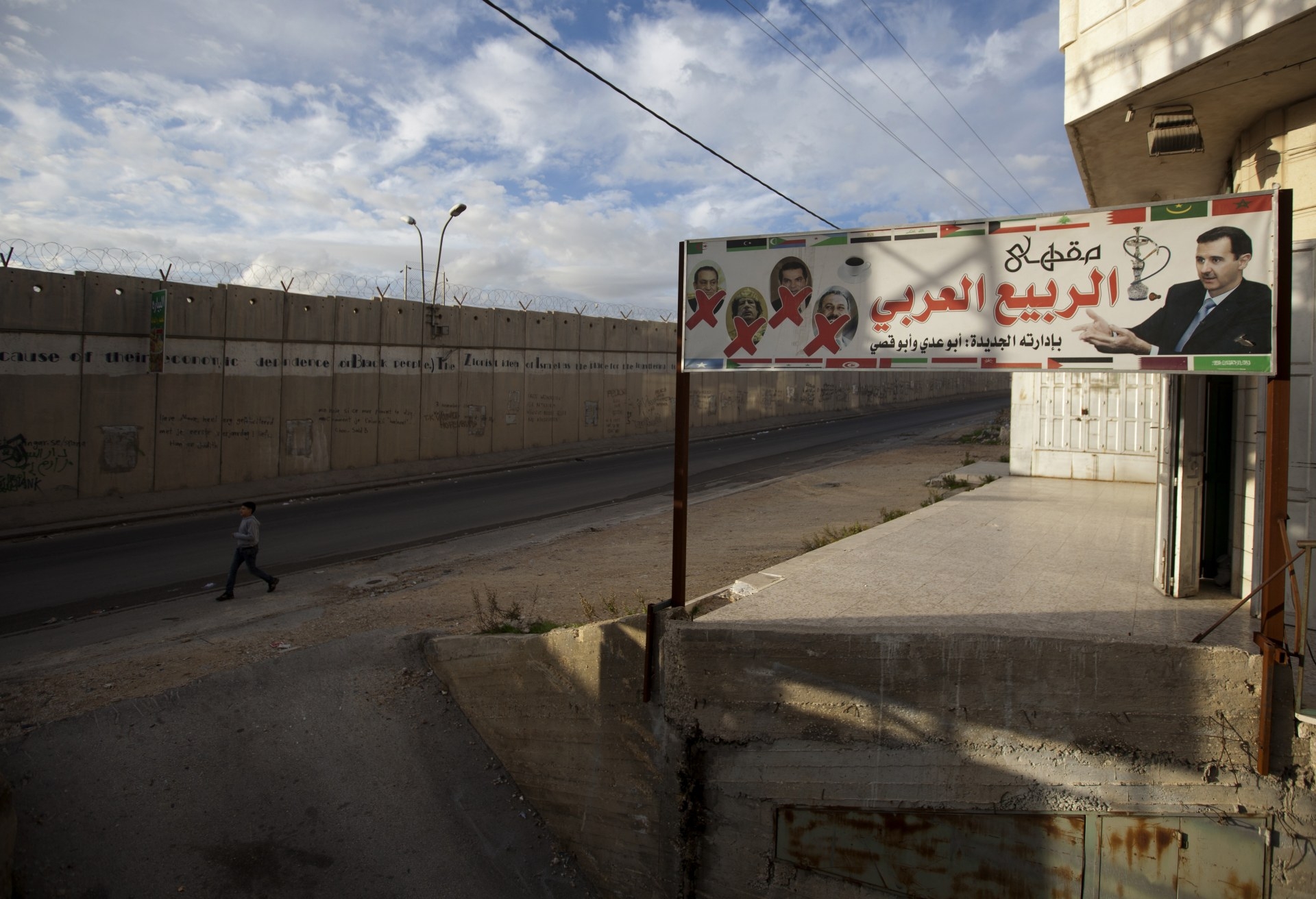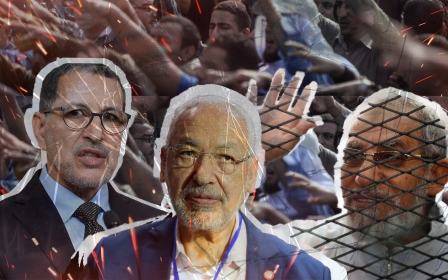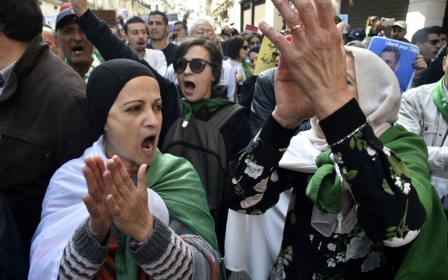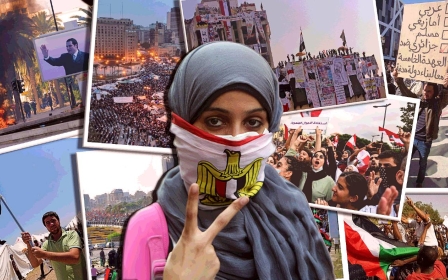Why Israel is now delighted about the Arab Spring

“Unintended consequences” is the best way to describe the impact the Arab Spring has had on Israel.
Ten years after the pro-democracy protests that swept the Arab world, Israeli analysts agree that December 2020 is the unexpected outcome of December 2010’s events.
They may differ in the interpretation of recent developments and assessment of their future impact - but all look back at the beginning of the decade as the starting point of a process that has led to a growing list of Arab and Muslim countries normalising relations with Israel.
All agree that the Arab Spring (a term coined by the West) is not a fait accompli; that the undercurrents are still very much there and can still change the landscape of the future.
Israeli political and public reaction to these historic uprisings was confused right from the start.
Public opinion was divided between those who believed that Israel’s situation worsened in face of the developments and those who saw the Arab Spring as a positive change for the country.
Even the term “Arab Spring” was up for debate, sometimes replaced by “Arab Winter” or a term officially coined by Israeli Military Intelligence, “Taltala”, a Hebrew word for “shake-up”. “Egyptian Plague” was one of many terms reflecting the profound confusion and derision.
If the Israeli discourse reflected public bewilderment, contradictory statements by Prime Minister Benjamin Netanyahu were reflections of confused policy.
The premier, who had preached in his own books that the lack of democracy in Arab states was the main obstacle to peace, openly avoided any reference to the democratic aspect of the Arab Spring.
“The Middle East is no place for the naive,” he stated in a speech delivered at the Israeli parliament on 23 November 2011, referring sarcastically to those who saw something positive in the unfolding events.
Yet, on the international arena, he adopted a more lenient approach, making statements like: “Israel is a democracy that encourages the promotion of free and democratic values in the Middle East and the promotion of such values will benefit peace."
In a paper published in January 2013 by Mitvim - The Israeli Institute for Regional Foreign Policies, analyst Lior Lehrs quotes “government sources in Jerusalem” as explaining that “Netanyahu felt he had to narrow the gap between him and the international community”.
“The PM, as the leader of the only democracy in the Middle East, understood he cannot ignore international criticism of [Egyptian President Hosni] Mubarak and therefore this time addressed the issue of promoting democracy in the region,” Lehr wrote.
In the years following this statement, the leader of a country that wrongly describes itself and prides itself as “the only democracy in the Middle East” befriended a long series of authoritarian regimes in the region.
From spring to normalisation
The “linkage” between the Arab Spring and the normalisation of relations between Israel and the UAE, Bahrain, Sudan, Morocco and likely more countries to come, was one of main themes of a conference dedicated to the decade by BESA, the right-wing-orientated Begin-Sadat Centre for Strategic Studies at Bar-Ilan University.
“The Arab Spring is the death certificate of Arab nationalism as we knew it in the Levant, and the rise of more dictatorship-like regimes,” Ehud Yaari, Israeli political commentator and analyst, told Middle East Eye.
“The collapse of central capitals like Cairo and Damascus spurred Arab peripheral countries to re-arrange the arena. The capital moved to the UAE, a more modern one, despite its modest size. This is a given of historical dimension not bound to change in the visible future. A whole new nation ball game in the Middle East.”
At the Begin-Sadat Centre conference on 23 December, Yaari briefly told attendees what he believed would be the “nightmare scenario" for Israel - the collapse "inwards" of Egypt.
Yaari later told MEE that while Iran and Turkey compete with each other over dominance in Levantine Arab states, the peripheral countries reached a conclusion that the answer to their growing threat is to establish a new partnership, supported by the US.
Yaari said Netanyahu’s “bragging” about annexation gave Abu Dhabi’s Crown Prince Mohammed bin Zayed an opportunity for normalisation. The September deal was inked with the promise that Israeli annexation of the occupied West Bank had been shelved.
“They wouldn’t do it for a supply of F-35 aircrafts; they aim at a kind of military-security covenant. Others will follow. Even Qatar will not stay behind long after Saudi Arabia joins. Then Muslim states like Niger, Mali and more will follow,” he said.
“The Arab Spring was a cry of those my Arab friend calls the ‘helpless, hopeless and jobless’, and not a vehicle for regime change. Yet many of the countries involved remained on a map only.”
According to his scenario, Israel becomes an integral part of the region by joining regional alliances like “the Red Sea forum”, a new Saudi initiative being discussed.
Menachem Klein, political scientist and adviser to Israeli negotiation teams in 2000 and 2003, believes that all normalisation agreements come as a result of the Arab Spring and the “dissolution” of the Arab League.
Once, the Arab League united states against Israel. When governments began attacking their people in 2011, those countries began turning on one another.
In this new constellation, Israel has become another factor in the fine fabric of alliances and rivalries in the Arab world.
“Israel integrated into the Arab fabric not just via those normalisation agreements but as an active player in the intricate labyrinth of contradictory interests of countries of the Middle East,” he told MEE.
“A long time ago, the late Shimon Peres dreamt of Israel as member of the Arab League; what he did not dream of is a broken region with a practically non-existent League.”
Klein is very much aware of the complexity of the new reality.
The upside, he believes, is Israel is accepted as a fact, even if the circumstances of its establishment are still illegitimate in the eyes of many. The downside, according to Klein, is that in the eyes of many in Arab societies, Israel is still perceived as the long arm of the United States, one that can be used for protection and arms, as well as a pipeline to Washington.
Israel, Palestine and domestic policy
Though Yaari and Klein both agree that the Arab Spring and normalisation deals have impacted the Palestinian cause, they do not reach the same conclusion as to how.
“I believe that the normalisation that stemmed from the Arab Spring will impose more restraint on any Israeli government, be it even ultra-right wing. No more annexation, no more Israeli construction plans in the controversial E1 area. Israel has too much to lose,” said Yaari.
“The Palestinians, on the other hand, finally realised they have no one to lean on, they are bound to change direction.”
Since Palestinian nationalism ceased to be an all-Arab issue, and now the Palestinians have been abandoned by Arab countries and in the reality subject to de-facto annexation, it has in fact become an Israeli internal domestic issue
According to this plan carefully crafted over a few years, Israel will take over control of the West Bank and divide it into segments like 'greater Nablus', 'greater Jenin', and so on
Klein does not agree with that conclusion nor with that scenario. The most dangerous repercussion of the decade that changed the Middle East is, according to him, the Palestinian issue.
“Since Palestinian nationalism ceased to be an all-Arab issue, and now the Palestinians have been abandoned by Arab countries and in the reality subject to de-facto annexation, it has in fact become an Israeli internal domestic issue,” Klein said.
“It is now more a question of domestic policy than of foreign policy. That twist just makes the situation more acute in the absence of external enforcement leading to a solution. Any explosion in the occupied territories can now easily lead to chaos.”
Klein knows of an Israeli military plan to deal with such an explosion. According to this plan carefully crafted over a few years, Israel will take over control of the West Bank and divide it into segments like “greater Nablus”, “greater Jenin”, and so on.
Each divided region will be under the control of a military governor. The Israeli military’s central command, Klein tells MEE, has already practiced the plan.
It is more than about controlling riots: this is the plan to dismantle one ruling authority - the Palestinian Authority - and thus smash the political entity of Palestinian nationality.
Unlike Yaari, Klein believes that the “shake-up” that skipped the occupied territories ten years ago is about to arrive.
This article is available in French on Middle East Eye French edition.
Middle East Eye propose une couverture et une analyse indépendantes et incomparables du Moyen-Orient, de l’Afrique du Nord et d’autres régions du monde. Pour en savoir plus sur la reprise de ce contenu et les frais qui s’appliquent, veuillez remplir ce formulaire [en anglais]. Pour en savoir plus sur MEE, cliquez ici [en anglais].




